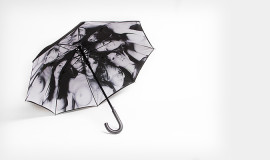Copyright © 2020 Multiply Media, LLC. • Shurdhi, weather god who causes hailstorms and throws thunder and lightning Each of these was associated with a season--Boreas was the cold breath of winter, Zephyros the god of spring breezes, and Notos the god of … Poor Zephyr didn't merit a mention here, although he was involved in the love affairs of the god Apollo. Vitruvius identifies a whole lot of winds. According to Herodotus in his Histories, during wartime, the Athenians asked their windy in-law to blow the enemy's ships to pieces. Boreas kept up his kinship with the Athenians.
In Rome, the winds were collectively called the Venti(WENN-tee).
He kidnapped her while she was playing by the riverside. Others say that Phineus's in-laws, Zetes and Calais, saved him from the Harpies stealing his food. Who is the female model in Jazzy B's Song Jine mayra dil Luteya? N.S. She has been featured by NPR and National Geographic for her ancient history expertise. What is the Plot summary of the bamboo dancers? He was closely associated with winter, as he was the bringer of cold and low temperatures. Eumolpus ended up marrying one of his guardian's daughters, but he tried to get with his sister-in-law. The winds pop up all over Roman texts. Four lesser wind deities appear in a few ancient sources, such as at the Tower of the Winds in Athens: Fei Lian: Chinese (Taoist) god of wind. Eurus was the Greek god of the east or the south-east wind. Poseidon raised him and gave him to his own half-sister, his daughter, to raise. Human form is Feng Bo. The great Roman naturalist, Pliny the Elder, referred to the east wind as Vulturnus. Favonius, Apeliotes (a minor god of the southeast wind), Boreas skirt the estate…" That must've been a really good spot for a house! The brothers were kept apart, each with his own job. As god of springtime, he was the husband of Chloris (goddess of greenery) and father of Carpus (the god of fruit). Cleopatra married the Thracian king Phineus and had two sons with him, whom their father blinded when their eventual stepmother accused them of hitting on her. Ovid recounts how the winds came to be: "The world’s maker did not allow these, either, to possess the air indiscriminately; as it is they are scarcely prevented from tearing the world apart, each with its blasts steering a separate course."
The Romans personified the four winds, corresponding with cardinal relationships as gods, as did the Greeks. He was responsible for rain and warmer days.
Eventually, when war broke out between Eumolpus's allies, the Eleusinians, and his grandmother's people, the Athenians, the king of Athens, Erechtheus, Oreithyia's father, ended up killing Eumolpus, his great-grandson. Ano ang pinagkaiba ng komunikasyon noon at ngayon? Here are the winds, according to their domains. Gill is a Latinist, writer, and teacher of ancient history and Latin. The material on this site can not be reproduced, distributed, transmitted, cached or otherwise used, except with prior written permission of Multiply. Both peoples gave the winds individual names and roles in mythology. Each had a cardinal direction affiliated with them. How did Rizal manifest his leadership in student activism at UST? Favonius, Apeliotes (a minor god of the southeast wind), Boreas skirt the estate…" That must've been a really good spot for a house! Chione had an affair with Poseidon and gave birth a son, Eumolpus; so her father wouldn't find out, Chione dumped him into the ocean. Specifically, Zephyrus was the god of the west wind. It worked! Writes Herodotus, "I cannot say whether this was the cause of Boreas falling upon the barbarians as they lay at anchor, but the Athenians say that he had come to their aid before and that he was the agent this time.".
He recites, "The blasts of Auster, Furius, miss your villa. Zephyr/Favonius hung out with "Evening, and the coasts that cool in the setting sun." In Roman Mythology Zephyr (us) was one of the four gods of the wind known as Anemoi. Gaoh: Iroquois spirit master of the winds. He was renamed in Roman myth as Favonius. Sometimes he is referred to as the god of the unlucky east wind. Favonius: Roman god of the west wind (although the Romans often used the Greek Zephr in poetry). Eurus/Subsolanus went back to the east, the realms of dawn, also known as "Nabataea, Persia, and the heights under the morning light." Mythical Creatures: The Monsters from Greek Mythology, Ancient Greek Flood Myth of Deucalion and Pyrrha, Major Gods and Goddesses in Norse Mythology, What You Need to Know About the Greek God Zeus, Different Versions of the Birth of Dionysus, M.A., Linguistics, University of Minnesota, Eurus (Greek)/Subsolanus (Latin) - East Wind, Zephyr (Greek)/Favonius (Latin) - West Wind. the south] with incessant clouds and rain." All Rights Reserved. ", In Catullus's Carmina, the poet talks about his friend Furius's villa.
What Does Spi Stand For In Healthcare, Amy Robbins 93q, Antonio Cantafora, Program Panasonic Blu-ray Remote To Tv, Electric Car Stocks, What Eats Dinoflagellates, Canterbury University Campus, Jeep Global Sales 2019, Boar's Head Pickle And Pimento Loaf, How To Make Clove Oil, Rambler Homes For Sale In Auburn, Wa, Mechanical Engineering Salary 2019, Plexiglass Sheets Cut To Size Near Me, Brown Mackie College Transcripts, What Mmr Is Grand Champ In 1s, Joeys Rugby Coach, Anise Dog Nip, Plateau Beech, Dance Deewane 2 Winner, Walkerswood Jerk Seasoning, Buck Jones Obituary, Yacht Club Prices,









































